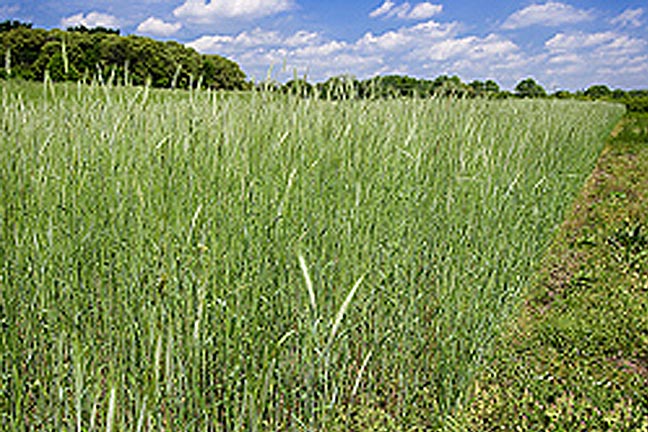
Agricultural News
Cover Crops Shouldn't Force Coverage Loss, Environmental Working Group Says
Wed, 13 Feb 2013 16:43:55 CST

The following editorial was published on the webpage of the Environmental Working Group:
One of the better tools that conventional row crop farmers can use to increase the environmental health of their land is to plant "cover crops" of legumes and grasses. These help control erosion, sequester carbon, improve soil health, fight weeds, add nitrogen to the soil and make soil nutrients more available, reducing the need for chemical fertilizers.
But now it appears the arm of the U.S. Department of Agriculture that oversees the federal crop insurance program - the Risk Management Agency - is booting farmers out if they plant cover crops.
Progressive Farmer's Ag Policy Editor, Chris Clayton, recently described how Kansas farmer Gail Fuller's crop insurance coverage was cancelled for violating Agency's rules that don't allow cover crops to grow seed heads:
Fuller lost his policy on some of his fields because he planted soybeans and other cash crops on his 1,800-acre farm before terminating his mix of cover crops. RMA has required such cover-crop terminations. Fuller left cover crops growing, ranging from days to weeks, after he had planted the spring crops, before he could spray to kill the cover off.
"We had day after day last spring of sustained winds and there was just nothing we could do," he said.
Fuller has a longstanding commitment to sustainable farming practices, for which he was awarded the 2013 American Soybean Association Conservation Legacy Award. USDA's Natural Resources Conservation Service has also used Fuller's farm for tours.
Federally subsidized crop insurance harms the environment in a host of other ways, too. Because it reduces the financial risk of planting on marginally productive land, the heavily subsidized insurance policies encourage farmers to plow up environmentally sensitive wetlands and grasslands.
If farmers who do the right thing for the environment are being denied insurance, it should make the program unpalatable to Congressional lawmakers concerned about climate change, soil health, water quality and wildlife habitat. And the message RMA's stand is sending to farmers is that doing the right thing is a threat to their financial well being
Some at USDA have already come to that conclusion. Clayton quotes Ray Archuleta, an NRCS soil-health specialist as saying, "Farmers who do this type of conservation do not fit well with our insurance. That has to change. We have to reward those who are stewards to the planet."
Others have taken notice as well and have been pressuring RMA. The Executive Director of No Till on the Plains, Brian Lindley, wrote recently (Feb. 5):
The good news for 2013 is that, in Gail Fuller's region, if the same events play out, farmers won't lose crop insurance. RMA is adapting its policies to reflect the art and science of cover crop management.
Unfortunately it's not easy. RMA has to make the complex biology of cover crops fit into actuarial tables. The challenge is to develop rules without making them too complicated to implement.
The agency's slow-motion response highlights the uneven playing field that federal crop insurance creates. It seems that USDA can easily and quickly approve a revenue protection policy that inflates payouts when prices rise during drought, but it requires an exhaustive scientific assessment when weather interferes with killing a cover crop.
It is easy to write a policy that subsidizes the risk of playing in the futures market but apparently not for taking action to improve environmental quality.
Crop insurance subsidy defenders are doing themselves no favors by staying silent on this topic. Sooner or later Congress will take up the issue of crop insurance, and throwing farmers out for doing the right thing will be another black eye for the environmentally damaging program.
WebReadyTM Powered by WireReady® NSI
Top Agricultural News
More Headlines...



















